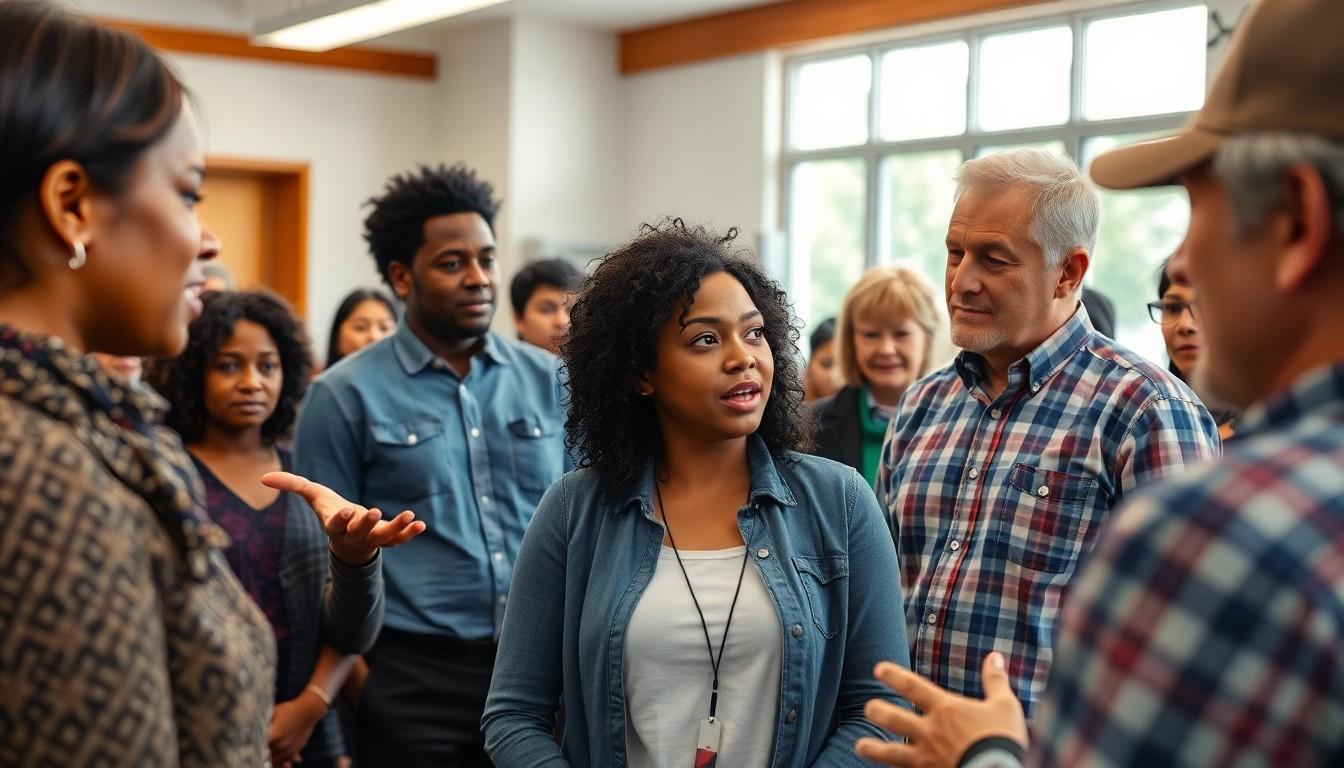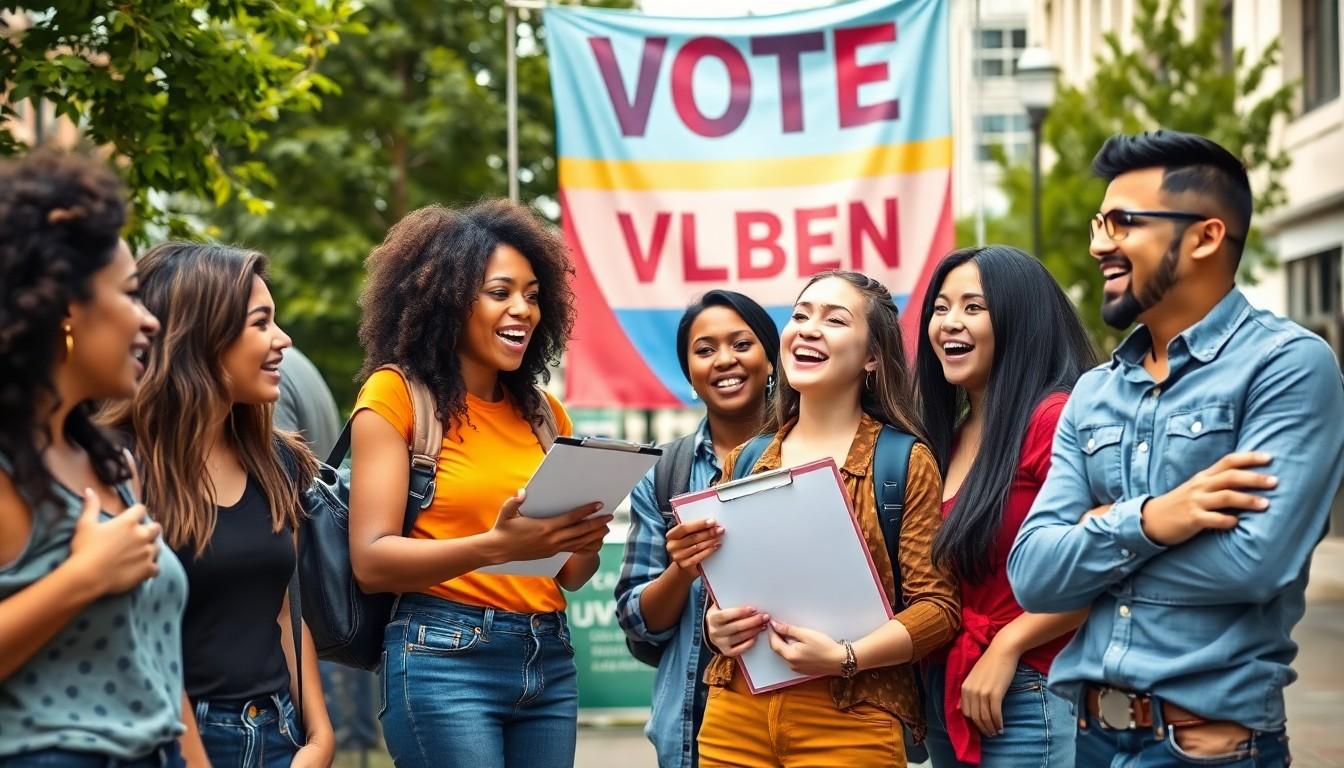In a world where political chatter fills the air like a bad cologne, understanding political efficacy can feel like trying to find a needle in a haystack. It’s that magical belief that one person can actually make a difference in the political arena. Spoiler alert: they can! Political efficacy isn’t just a fancy term for political daydreaming; it’s the secret sauce that fuels activism, voting, and civic engagement.
Imagine feeling empowered enough to raise your voice and actually be heard. Whether it’s rallying for change or simply casting a vote, believing in one’s ability to influence the political landscape can turn apathy into action. So, let’s dive into the world of political efficacy and discover how it transforms ordinary citizens into change-makers, one bold step at a time. After all, who wouldn’t want to be the superhero of their own political story?
Understanding Political Efficacy
Political efficacy embodies the belief in one’s ability to enact political change. This belief shapes how individuals engage with political processes, influencing their participation in various activities.
Definition of Political Efficacy
Political efficacy refers to an individual’s confidence in their political influence. It encompasses two key dimensions: internal efficacy, which reflects self-perception and understanding of political systems, and external efficacy, which concerns individuals’ views on whether their actions affect political outcomes. This belief plays a significant role in motivating civic engagement and promoting active participation in elections and community initiatives.
Importance in Democratic Societies
In democratic societies, political efficacy serves as a cornerstone for effective governance. Higher levels of efficacy encourage greater voter participation and involvement in civic life. When citizens feel empowered to effect change, they are more likely to advocate for policies that align with their values. Enhanced political efficacy fosters a balanced representation of diverse perspectives, strengthening the democratic process and promoting social accountability.
Factors Influencing Political Efficacy

Political efficacy is shaped by various factors that significantly impact an individual’s belief in their ability to make a difference. Understanding these influences helps in recognizing the underlying mechanisms that drive civic engagement and political participation.
Socioeconomic Status
Socioeconomic status plays a crucial role in determining political efficacy. Individuals from higher socioeconomic backgrounds often enjoy greater access to resources. Increased financial stability enables more significant political engagement opportunities. Furthermore, these individuals may possess networks that facilitate political involvement. In contrast, those from low-income backgrounds may experience barriers such as limited access to information and resources. Consequently, socioeconomic disadvantages can diminish feelings of political efficacy and civic commitment.
Education and Awareness
Education directly correlates with political efficacy. Individuals who pursue higher education levels tend to demonstrate a stronger understanding of political systems. Increased knowledge fosters confidence in one’s ability to influence political outcomes. Educational experiences also expose individuals to diverse perspectives, enhancing critical thinking skills. Awareness of political processes equips citizens with tools to navigate the political landscape effectively. Thus, education significantly contributes to an individual’s overall sense of political efficacy.
Media Influence
Media influence significantly shapes perceptions of political efficacy. Access to reliable and diverse information channels can empower citizens. Positive media coverage of civic actions often inspires others to participate. Conversely, negative portrayals may lead to feelings of disillusionment and apathy towards political engagement. Social media platforms also amplify voices, giving individuals an opportunity to share their opinions and foster discussions. Ultimately, the role of media in shaping public perception directly affects the overall political efficacy experienced by individuals.
Measuring Political Efficacy
Measuring political efficacy involves various tools that assess individuals’ beliefs in their political influence. Surveys and assessments play a vital role in this measurement.
Surveys and Assessments
Surveys often gauge levels of political efficacy among different populations. Standardized questionnaires evaluate individuals’ internal and external efficacy, collecting data on self-perception and perceived impact. For instance, the National Election Study utilizes a range of questions to quantify citizens’ feelings about their political power. These assessments reveal correlations between education levels, socioeconomic status, and feelings of empowerment. Analyzing this data offers insights into demographic trends in political engagement.
Case Studies
Case studies provide concrete examples of political efficacy in action. Examining communities that experienced significant civic engagement illustrates this concept effectively. For example, the 2018 midterm elections in the United States saw increased voter turnout among younger demographics, reflecting a surge in political efficacy. Studies of grassroots movements, such as social justice initiatives, highlight how individuals mobilized due to heightened political confidence. These real-world examples demonstrate the transformative power of political efficacy in shaping collective action and driving change.
Implications of Political Efficacy
Political efficacy significantly impacts individual actions and societal outcomes. The belief in one’s ability to effect political change leads to increased participation in civic life.
Civic Participation and Engagement
Civic participation flourishes when individuals feel politically effective. Increased efficacy often correlates with higher voter turnout and engagement in community initiatives. Studies show that empowered citizens advocate for local issues, join advocacy groups, and participate in town hall meetings. These actions create a ripple effect, encouraging others to engage as well. As a result, communities with high political efficacy regularly see stronger grassroots movements and collective actions.
Impact on Policy and Governance
The influence of political efficacy extends to policy-making and governance. Individuals who believe in their political power actively participate in lobbying efforts and influence legislative agendas. Regular contributions to public discourse through rallies and forums shape policy decisions. Political leaders recognize that constituents with a strong sense of efficacy demand accountability and responsiveness. Policies that reflect public concerns emerge from this vigorous engagement, ultimately leading to better governance practices.
Conclusion
Political efficacy plays a vital role in shaping democratic engagement and societal outcomes. When individuals believe they can make a difference politically, they’re more likely to participate in civic activities and advocate for their values. This sense of empowerment not only drives higher voter turnout but also fosters community involvement and accountability.
As citizens recognize their potential to influence change, they contribute to a more vibrant democracy. Overcoming barriers to political efficacy is essential for cultivating a society where everyone feels capable of making an impact. By embracing their political power, individuals can transform their communities and ensure their voices are heard in the political arena.

